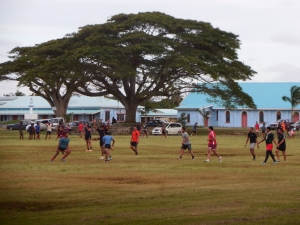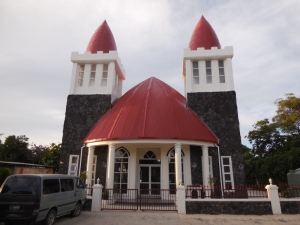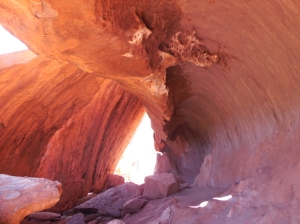If I say ‘tropical island kingdom in the Pacific’, would you think of political riots, racial tension, corrupt authorities, roadside pollution, feudal rule, poverty, alcoholism and natural disasters? I’m guessing no.
Nonetheless, this is also part of the otherwise picture-perfect postcard that you get here in Tonga. It would be easy to write yet another envy-inducing traveller’s blog about how cute all the traditional costumes are, how friendly the people are, how white the sandy beaches are and how fresh the cheap coconuts taste.

Even though the World Cup is on these days, local rugby matches draw more attention than any soccer game will ever do.
Of course, all of that is true and the weather is great too, but you know me; I can’t help but digging up the dirt and the quirk. So here we are – welcome to an alternative peak into the Kingdom of Tonga.
A Cash-Conscious Church
Tonga is the only Polynesian island nation that has never lost its sovereignty to a foreign power. In other words; they were never colonized. For that reason, it is probably also the best living example of uninterrupted Polynesian culture with all the feudalism and taboo that this entails.
That is not to say that new ideas and cultural traits haven’t been introduced. Take Christianity for instance. In the 1800’s Tonga started receiving missionaries of all sorts of Christian denominations; Mormons, 7th Day Adventists, Catholics, Wesleyans, Lutherans, you name it. In modern day Tonga this translates into a 99% Christian population.
Yet, the Tongans didn’t so much get converted as they converted the church practices into a distinctively Tongan version. One example of that is the widespread practice of drinking the anaesthetic juice made from the roots of the Kava plant. In the Free Church of Tonga, the preacher and the congregation thus get moderately stoned together right before and immediately after church services.
Another uniquely Tongan church practice is the in-your-face money collection, which happens during service and ends with a public counting of the loot and a subsequent public reading from a list of givers and their contributions. Talk about peer-pressure.
Traditional Pressures
Where Westerners often feel pressure and expectation in their work-environments, Tongans feel their societal obligations most strongly within their families and churches. Tongans will apparently often take out expensive loans just to afford an ‘appropriate’ donation to the church and when a family member dies, the family absolutely must perform certain rites that are often cripplingly expensive.



